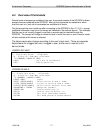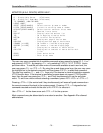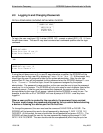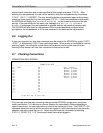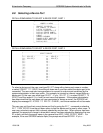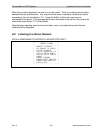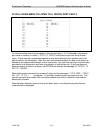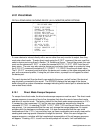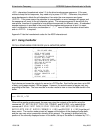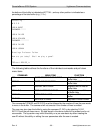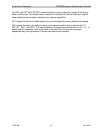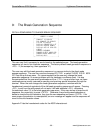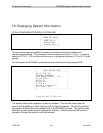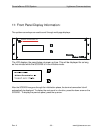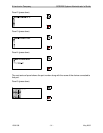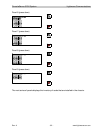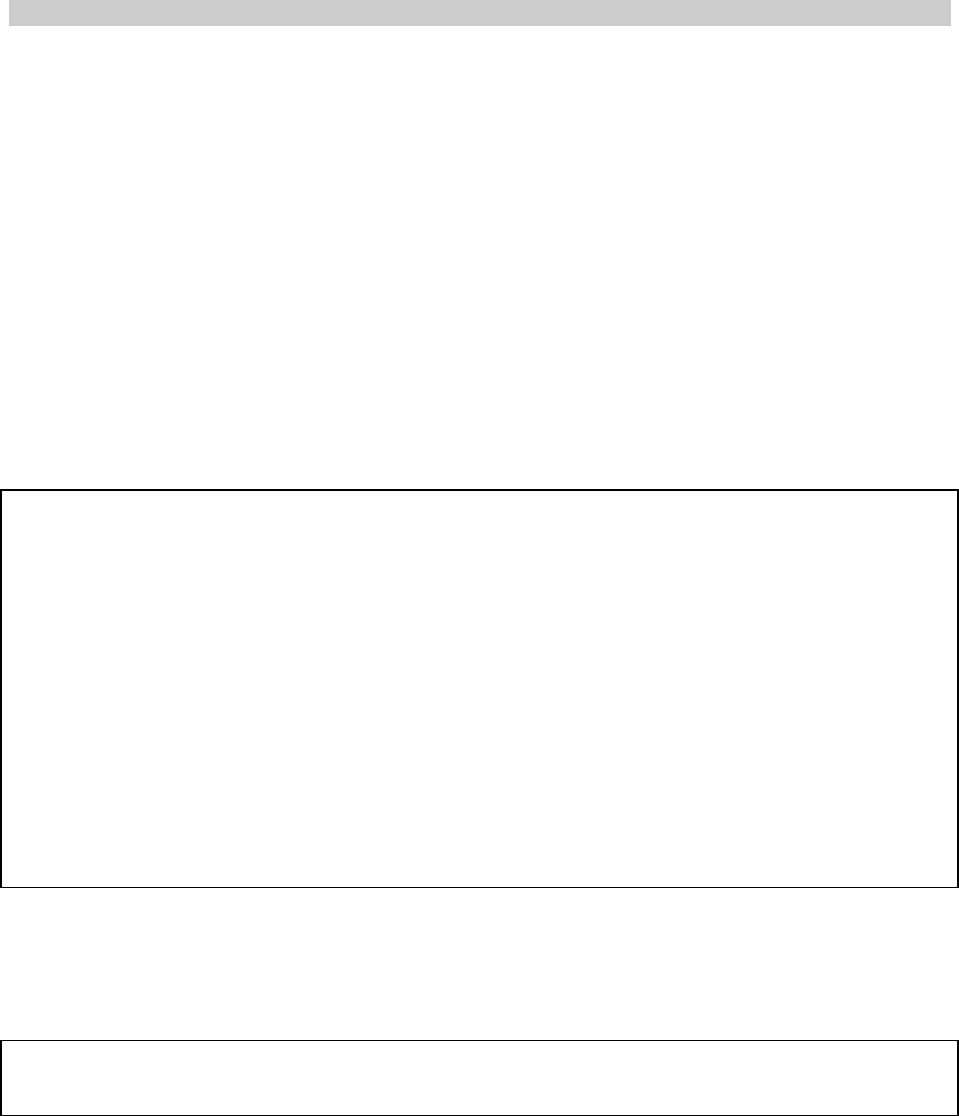
A Lantronix Company SCS3230 System Administrator's Guide
15.00.038 - 85 - May 2002
<ESC> characters (hexadecimal value 1B) to the direct mode escape sequence. If the user
wishes to keep the old sequence, they need only to press <ENTER>. Otherwise, they should
press backspace to delete the old characters, then enter the new sequence and press
<ENTER>. If for some reason the selection is unacceptable, an error message will appear and
the sequence will revert to the old character values. The escape sequence is stored with the
user profile, therefore it is possible to have different sequences for different users. A hardcoded
escape sequence is provided in the event that the programmed sequence is lost. It is semi-
colon, exclamation, semi-colon, exclamation or ‘;!;!’ none of these characters should echo
and no <ENTER> is required.
Appendix F lists the hexadecimal codes for the ASCII character set.
8.11 Using the Buffer
F2 PULL-DOWN MENU FOR DEVICE (A.K.A. MONITOR) MODE
+-------------------------+
¦ DEVICE MODE MENU ¦
+-------------------------¦
¦ ENTER DIRECT MODE ¦
¦ CONNECT TO SERVER ¦
¦ DIR CONNECT TO SERVER ¦
¦ DISPLAY NEXT PAGE ¦
¦ DISPLAY PREVIOUS PAGE ¦
¦ GOTO BEGINING OF BUFFER ¦
¦ GOTO END OF BUFFER ¦
¦ CLEAR BUFFER ¦
¦ FORWARD N LINES ¦
¦ REVERSE N LINES ¦
¦ CAT ¦
¦ CAT WITH FILTER ¦
¦ EXIT FROM SERVER ¦
¦ DISPLAY CONNECTED LIST ¦
¦ LOGOUT ¦
¦ DISPLAY HELP ¦
+-------------------------+
Each device port saves the output of a server to a FIFO buffer. Each buffer can store up to 64K
of data, giving approximately 100 text pages. However, the actual amount of pages may vary
according to the data. The user must be in monitor mode to view or clear the data stored in the
buffer.
user-DEVICE_1>TOP
When at the monitor mode prompt, the user may view the contents of the buffer using the
commands TOP, BOTTOM, NEXT, PREVIOUS, FORWARD, and REVERSE, or by selecting the
commands DISPLAY NEXT PAGE, DISPLAY PREVIOUS PAGE, GOTO BEGINNING OF
BUFFER, GOTO END OF BUFFER, FORWARD N LINES, and REVERSE N LINES from the pull
down menu. The monitor mode prompt will appear at the bottom of the displayed buffer data,
and the user may enter commands normally at this prompt. The prompt is prefixed with the
position of the currently displayed screen in the buffer; the top of the buffer is indicated by TOP>,



